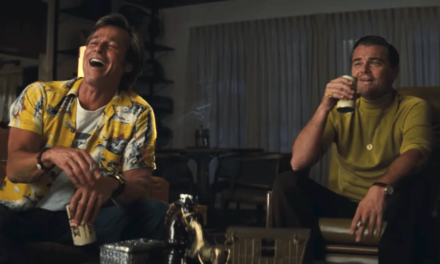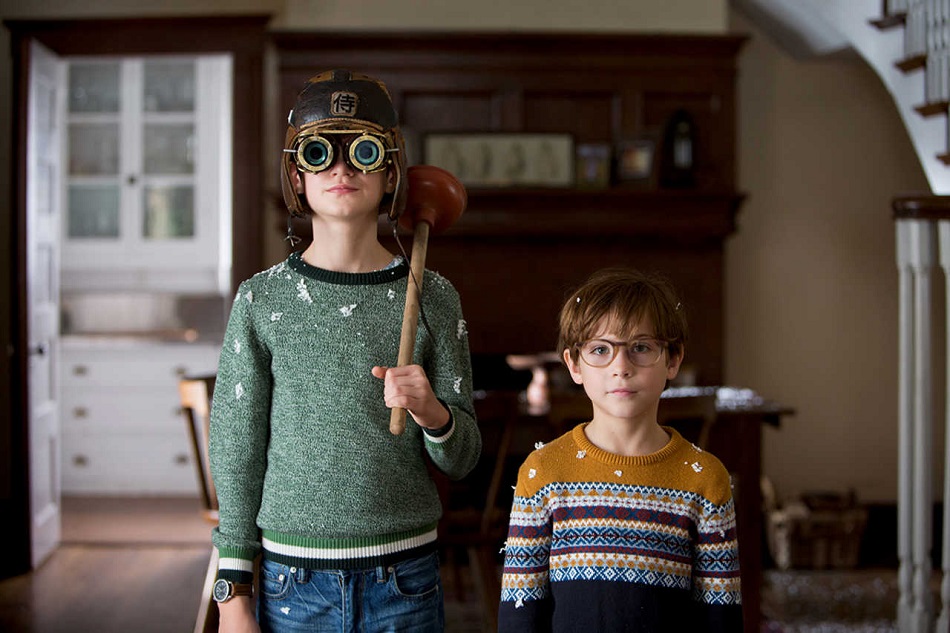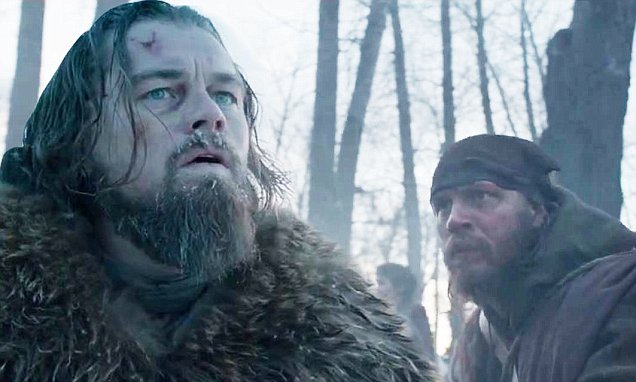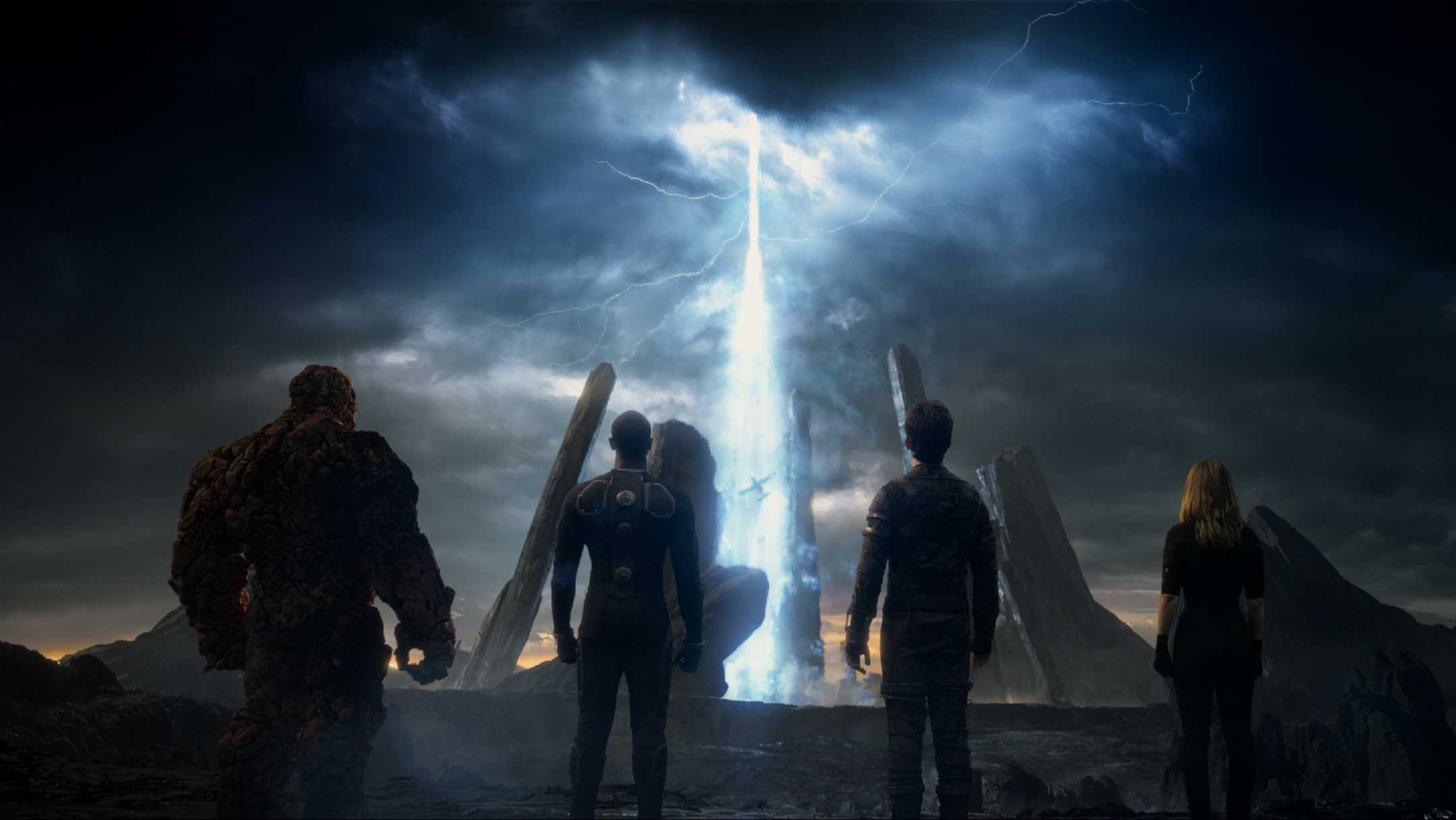It’s been reported leading up to the release of Silence that Martin Scorsese has been trying to get it made for roughly three decades. Hollywood’s preeminent struggling Catholic has scraped tooth and nail between projects to get this film made, to reckon with his own faith, his own doubts. It’s all at once a noble effort and one that threatens to alienate even his most ardent fans. Marty has made important, genre bending pictures for 6+ decades now but he’s never made anything like Silence. And in its best moments I’d venture to guess no one has.
Scorsese has never been shy about his Catholicism or his rampant doubt about it. He’s grappled with it several times, whether it be his ideologically skewed gangsters in Goodfellas, his boxer and family in Raging Bull or his most overtly religious work, The Last Temptation of Christ. He is a clear believer but one that is not afraid to cloak himself in uncertainty and revel in it publicly. It’s a high wire act in Hollywood to be sure and one that lesser talents have failed at mightily.
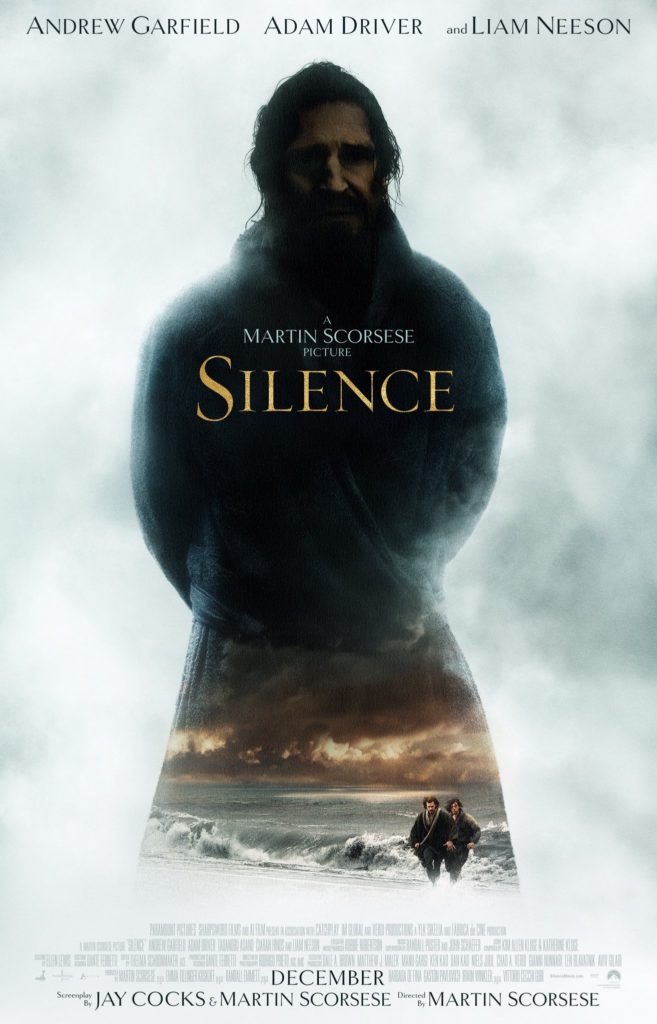 In Silence Scorsese doesn’t just grapple with the broad strokes of faith itself but with the very nature of religious (specifically) Catholic imperialism in the seventeenth century. His Jesuit priests Rodrigues (Andrew Garfield) and Garrpe (Adam Driver) are Portuguese men of the cloth who convince their superiors to embark on a mission to Japan. Their mentor, a padre called Ferreira (Liam Neeson) has allegedly renounced the faith and taken a wife. Not believing a word of it they corral a shifty drunkard called Kichijiro (Yôsuke Kubozuka) to translate for them and embark on their journey.
In Silence Scorsese doesn’t just grapple with the broad strokes of faith itself but with the very nature of religious (specifically) Catholic imperialism in the seventeenth century. His Jesuit priests Rodrigues (Andrew Garfield) and Garrpe (Adam Driver) are Portuguese men of the cloth who convince their superiors to embark on a mission to Japan. Their mentor, a padre called Ferreira (Liam Neeson) has allegedly renounced the faith and taken a wife. Not believing a word of it they corral a shifty drunkard called Kichijiro (Yôsuke Kubozuka) to translate for them and embark on their journey.
When they arrive on the island, huddled together in a seaside cave, the padres are greeted by a small village of Christian Japanese – desperate to help them and for their own salvation. They shroud their faith in secrecy as the fascist Japanese government has deemed it illegal to practice Christianity, allowing only Buddhism at the time. It’s not only illegal, it is being snuffed out and all followers of Christ are being slaughtered or are made examples of in humiliating, dehumanizing ways.
While the padres drum up ways to search or contact Ferreira they only come out from their hidden hut at night, to practice the faith with the villagers. They hold mass in the dead of night, listen to confessions and learn all they can about the persecution that these people endure.
These early scenes are where Scorsese clearly presents the good that missionaries can and have done throughout the world. The hope for betterment of self and salvation are powerful tools but wielded with dignity can bring peace to viciously mistreated communities. It’s clear to the padres what their mission is and the good they can do.
The film’s second half is where Scorsese flips this notion. After the government inquisitor Inoue (played with unhinged glee by the masterful Issei Ogata) shakes down the village and drowns three Christians via crucifixion the padres decide to split up and flee to separate parts of the country. The villagers beg them to stay but they deem it too dangerous to do so. A fool’s errand perhaps as they are both captured and forced to endure untold horrors.
It’s clear as the hopefulness of their early encounters are stripped away that these priests are severely lacking the proper knowledge of how to navigate Japanese politics while stridently adhering to their intensely held beliefs. It’s their prideful nature that undoes any progress they make – after they’ve touched a village they move on – seemingly with the thought, “ok we got through to them, let’s get our numbers up before we head home!” It’s an intensely selfish impulse that the priests seemingly never wrestle with even as scores of their disciples are viciously tortured and mutilated in front of them.
I think Scorsese clearly believes in missionary work but recognizes the faults and can’t seem to make anything of them. Which is what makes the Silence feel more modern thematically. Proud men arguing over the fate of others while starkly battling with themes like – closing borders, screening immigrants for religious affiliations, building walls…sound familiar?
Scorsese alongside his brilliant cast (Driver, Garfield and Ogata especially) has crafted something that is sure to spark discussion, even debate over its usefulness. But one thing cannot be denied – this is a work of tortured genius that, regardless of belief, cannot be trifled with. One can’t even say that movies like this aren’t made anymore – movies like this, regardless of era, simply aren’t MADE. It’s an achievement of astonishing scale.
The title Silence refers to many things but most importantly that specific sound many believers and non-believers alike hear when they call out to who or whatever they believe in. If the simple act of prayer, even to something as empty as silence, provides nothing tangible beyond the action – then what do these men have in the face of such suffering? And to that end, what’s the point?


